![]()
Fri, Oct 26, 2012 | RubinReports | By Barry Rubin
A reader asks:
I agree that democracy and economic development are not panaceas for the Middle East, just as they are not for any other location on the planet. But aren’t they a start? And since it is possible to chew gum and walk at the same time, does it hurt to at least pay lip service to doing things to bring the rest of the Middle East into the 21st Century? And what would those things be in your opinion?
Both candidates in the presidential election debates spoke of economic development as a top priority in their Middle East policy. This sounds good to voters but is pretty meaningless.
A typical example of this meme is given by Obama in his June 4, 2009 Cairo speech:
We … know that military power alone is not going to solve the problems in Afghanistan and Pakistan. That’s why we plan to invest $1.5 billion each year over the next five years to partner with Pakistanis to build schools and hospitals, roads and businesses, and hundreds of millions to help those who’ve been displaced. That’s why we are providing more than $2.8 billion to help Afghans develop their economy and deliver services that people depend on.
But almost four years later, none of this massive expenditure has either changed the situation in those countries or even brought much benefit to their people.
A Western viewer might accept Obama’s claim that people just want good jobs, nice housing, and higher living standards for themselves and their children. Yet the appeals of radical ideology overcome material considerations. There are lots of people who would like their children to grow up to be suicide bombers or prefer piety to prosperity. Even though many don’t think that way, they might be persuaded that radicalism is the best route to better lives. Ayatollah Khomeini dismissively referred to this theory shortly after he took power in Iran by remarking that the West seemed to think the Iranian Islamist revolution was “about the price of watermelons” but that wasn’t true at all. And finally, when people and rulers see no real way to achieve prosperity, both the governments and the masses will turn to demagoguery, scapegoating, and foreign adventures.
It does make sense to the Western mind that material conditions will determine the political beliefs and loyalties of Arabs and Iranians. Yet over the span of the last century things have simply not turned out that way in practice. This was partly due to the fact that nobody delivered major increases in living standards except in the Gulf Arab states like Saudi Arabia, and in those places it was a highly traditional and religious way of life being reinforced.
Elsewhere governments mustered loyalty not by making the pie bigger, but by controlling who got what. So if you had the option, material well-being for the urban middle-class and certain ethnic segments meant supporting the dictatorship and getting some reward. That will also apply if the dictatorship is an Islamist one, which can offer spiritual exaltation as well. And at least for some years many voters — where people have the opportunity to choose — will believe that Islamism is the best chance for a stable, just, and relatively prosperous society.
Countries are not prepared for progress due to ideology, worldview, institutions, political culture, and many other factors. In particular, the presence of such large and powerful radical forces — willing, even eager, to use violence — is a huge problem. Demagoguery is potent. Such factors can override the kind of materialistic orientation and enlightened self-interest that Westerners expect, and that underpin the belief that democracy can provide stable polities and ensure moderation.
It should be stressed that every country is different. In general, though, the problem with economic development is that it does not trump politics. The countries of the region can be divided into those that have oil wealth and those that don’t. The wealthy countries don’t need American programs to engage in economic development. In some cases, radicalism and instability keep getting in the way. In others — think of Iran or Iraq under Saddam — economic development is managed within the framework of an extremist regime and ideology.
It is true that the wealth of Saudi Arabia, Kuwait, Qatar, and the United Arab Emirates have made them more cautious and — often in practice but not in rhetoric or domestic policy — more pragmatic. But one must be cautious here. Saudi Arabia’s wealth and the high living standards of many citizens has not made the country a paragon of democratic values at home and moderation abroad.
Saudi money has been used to spread Islamism and to back radical Islamists, most notably in contemporary Syria and in Iraq a few years ago. Qatar has aligned itself with Iran and the Muslim Brotherhood, engaging in mischief as far afield as Libya. Iraq and Algeria need stability but the problem is not economic development as such but merely pumping more oil and doing something about bureaucracy and corruption.
Certainly, though, these countries do not need Western governments to promote economic development.
Radical regimes, like Libya under Muammar al-Qaddafi, Iraq under Saddam Hussein, or Islamist Iran use some of their wealth for development and much of it for projects like building nuclear weapons and subverting their neighbors.
So regarding the wealthy countries there isn’t much for the West to do in promoting economic development. What about the non-oil states? Let’s look at the specific cases. Lebanon, famous for its merchants, had a self-made multi-millionaire as prime minister who focused on economic development. But he was forced out and assassinated. Internal conflict, ideology, and engagement in foreign adventures wrecked the chance for economic development.
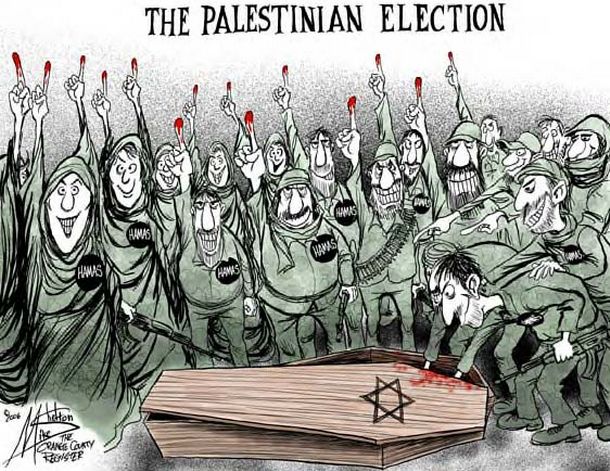
The Hamas regime in the Gaza Strip is more interested in fighting Israel than in raising living standards.
The same applies even more to the Hamas regime in the Gaza Strip, which is more interested in fighting Israel than in raising living standards. How can the West help when the local impetus is lacking?
This brings us to Egypt. The truth is that Egypt has a lot of people but few resources and a terrible structural and cultural situation regarding work. Here’s one example. A leading British supermarket chain opened stores in Egypt. Traditionalists, radicals, and competitors (the owners of small stores) spread rumors that the supermarket company backed Israel and was anti-Muslim. Despite the store’s efforts at denial and appeasement, the pressure became so great that it had to close and leave the country.
In a Muslim Brotherhood-ruled Egypt, with Salafists engaging in anarchic violence, is U.S.-backed economic development going to make any differences? As for the Palestinian Authority, vast amounts of aid money have flowed in and despite some apparent successes — a lot of luxury apartments have been built and people kept employed in the government bureaucracy — no lasting progress has been made. A lot of the money has ended up in the political leaders’ foreign bank accounts. At any time, Hamas could take over or the Fatah-led regime turn back to a war against Israel.
Economic development sounds good, but in practice it is more a way to keep Western citizens happy than to make a real difference in the Middle East.
For example, when discussing his economic development policy in the foreign policy presidential debate, Obama cited his government’s “organizing entrepreneurship conferences.” And in reality a lot of the money is simply a payoff to local regimes or a way to shore them up. It has nothing to do with real development.
The story of the battle of factions and corrupt leaders in the Palestinian Authority over awarding a mobile phone contract; how EU-financed public housing turned into luxury apartments to reward regime supporters; or the sabotage against building an improved sewer system in the Gaza Strip — even though foreign aid was paying for the whole project — are wonderful case studies in how economic development campaigns that look good in the West amount to a joke on the ground.
There are, however, three countries that could benefit from economic development efforts if they were to be focused. Those are Tunisia, Morocco, and Jordan. Tunisia, of course, is currently ruled by an Islamist-dominated regime. Whether that government will remain cautious or turn increasingly radical — pressed on by rampaging Salafists — is not clear. Strengthening the moderate forces in Tunisia, which are more proportionately substantial than in any other Arabic-speaking country, is a worthwhile effort but it might not work.
Ironically, Morocco and Jordan are led by moderate regimes threatened by a public opinion that is often radicalized due to poverty. Even there, however, this is not the sole factor. Jordan, for example, has a powerful opposition Brotherhood and a potentially radicalized Palestinian majority. The Palestinians who came there after being expelled from Kuwait in 1991 (because of the PLO’s support for Saddam Hussein’s invasion) brought in a lot of riches and business skills. Amman has become a much wealthier city but Jordanians generally don’t seem to have benefitted much.
But Jordan is relatively small, weak, and doesn’t cause trouble, while Morocco is not a factor in the region’s international affairs. So the places where a real economic development effort could really make a difference get neglected. For a while, the Saudis talked about admitting Jordan to the rich man’s club, the Gulf Cooperation Council, and giving a billion dollars in aid. But nothing came of it in the end.
Remember that the United States gave tens of billions of dollars in aid to Egypt without getting gratitude or popular moderation. Similarly, the United States gave or helped organize an effort for the Palestinians that constituted the most aid money given per person in history. Yet this brought neither progress on the peace process, a transformation in Palestinian thinking, or gratitude.
At any rate, while “economic development” sounds like a great idea, a fine way of making people happy, getting them to love America, and undermining radicalism, in practice it isn’t so effective.
Barry Rubin is director of the Global Research in International Affairs (GLORIA) Center and editor of the Middle East Review of International Affairs (MERIA) Journal. His latest book, “Israel: An Introduction“, has just been published by Yale University Press. Other recent books include “The Israel-Arab Reader” (seventh edition), “The Long War for Freedom: The Arab Struggle for Democracy in the Middle East” (Wiley), and “The Truth About Syria” (Palgrave-Macmillan). The website of the GLORIA Center and of his blog, Rubin Reports. His original articles are published at PJMedia.



 RSS
RSS


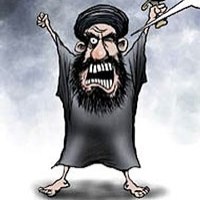
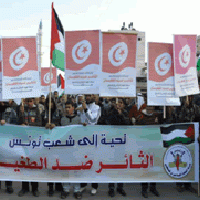
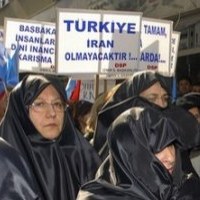
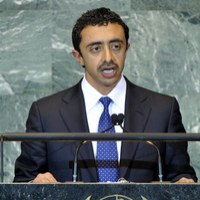




Latest Comments
Hello Mike, Thank you for your positive feedback to the article. I felt there wasn’t too much critical analysis of ...
Thanks for this considered and well constructed article. A follow up article on the manner in which the editorial contro...
THE CLUELESSNESS OF CLAIMING THAT OBAMA'S MIDDLE EAST POLICIES WERE A FAILURE CANNOT BE FURTHER FROM THE TRUTH, WHAT THE...
As long as Obama is the president of the usa do not trust the us government......
Thank you for an good read....